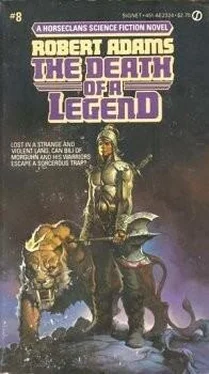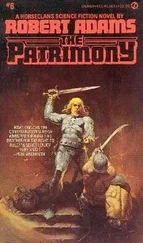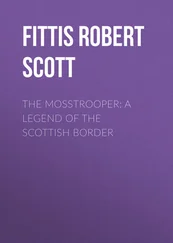“Rather did they come to respect and revere these true-men who treated them as large but praiseworthy men like themselves, not as huge, potentially dangerous animals.
“Especially did they come to revere King Mahrtuhn. No one had realized the depth of their devotion and adoration of him until his death, when they all joined to give his husk a truly magnificent resting place—carving a tomb out of the living rock of what has since been called King’s Rest Mountain.
“But with their grieving done, they did not hesitate to transfer the full measure of their love, allegiance and unswerving loyalty to his sons—King Byruhn III and Duke Fillip, his younger brother—both of whom were telepaths, as too is King Byruhn’s only living son, my father, King Djahn. And the two royal brothers admired and respected their huge and mighty subjects in as full a measure as had their late father. So when the Fowler—who, being one of the very few fullblood Teenéhdjook still living in his group, was their Eldest or leader—notified the duke and the king of the presence of a large family of pure-strain Teenéhdjook camped in the northeastern reaches of New Kuhmbuhluhn, told of their natural terror of all true-men and suggested that, if granted time to patiently win them over, he could persuade them to settle permanently in the kingdom, my eager grandfather and great-uncle promptly pledged their full cooperation.
“Lumbering operations were shifted to another forest, and a string of watch posts linked by pony patrols was established to make certain that no true-men wandered into the designated area and alarmed the new family of Teenéhdjook. The Fowler was relieved of all other responsibilities for an indefinite time and given leave to choose whomever he wished whenever he wished to accompany him on his visits to the new group.
“Only when the Fowler felt the rime was right was a meeting arranged between the Eldest of these new Teenéhdjook and the royal brothers of New Kuhmbuhluhn. As agreed, they came without escort, save for the Fowler and his sons; hunters they rode, rather than destriers, and they were completely unarmed save only for their swords and dirks, so great and deep was their knowledge of the honorable and gentle ways of those they sought.
“That meeting was a complete and unqualified success. The Eldest of the new-come Teenéhdjook was allowed free and full access to the innermost recesses of the minds of both men, that he might know from the outset that all he had been told by the Fowler and his kind had been unembellished truth and that he and his family were not being lured into any manner of trap or ambush.
“Thus, young cousin, did Elmuh’s grandfather and his family take up open residence in, and become ever-loyal subjects of, the Kingdom of New Kuhmbuhluhn. But it was not until they had become settled and secure among the true-men—whose races had been their enemies and their very terror for uncounted ages—that the Eldest revealed to King Djahn the prophecies of the Eyeless Wise One which had directed them here.”
At that juncture, Rahksahnah asked, “But Prince Byruhn, if continue a pure strain of these Teenéhdjook, wished your grandfather, why allow did he interbreedings with these Ganiks to go on? Master Elmuh stated did that both his mother and his mate Ganiks were. Horses or kine you would not so carelessly permit to breed… at least, would not any sane woman… or man.”
“Aye, my lady,” agreed Byruhn, nodding, “the breeding of domestic animals must be always controlled. But, my lady, the Teenéhdjook are not kine, nor any other type of beast They are men, else there could never be any form of issue from their matings with Ganiks. Moreover, they are staunch and valuable subjects and, as such, are and should be free to take such mates as they fancy, within their own class, of course. Not all of the Teenéhdjook chose to mate with Ganiks or Kleesahk, not at the onset, at least. But some did—our Elmuh’s sire, among them. And we Kuhmbuhluhn-ers were to later find ourselves glad that they had so done. “Personally speaking, of course, I cannot imagine bedding a Ganik woman, ever; the small ones or the large, though the large Ganiks at least keep themselves cleaner than the small. Not only do most Ganiks attire themselves in ill-cured or even green hides, but because of one of their host of gods or devils—this one called Plooshuhn—they never bathe their filthy bodies from birth to death, and they all dress their hair with a foul concoction of rancid butter and their own or someone else’s urine.”
Recalling the unholy reek of that horde of shaggies he and his squadron had fought back on the plateau, Bili set his jaws solidly and fought to hold down his rising gorge. Such unnatural creatures as the prince was describing sounded to him more bestial than the very wild beasts themselves.
“My lord duke,” asked Lieutenant Brakit diffidently, “has this officer his lord’s permission to address his highness the prince?”
Despite his nausea, long self-discipline forced a smile to Bili’s lips to accompany his reply. “Of course you do. You’d not be dining up here at this table were you not nobly born.” Then he said to Byruhn, “My lord prince, Lieutenant of Freefighters Frehd Brakit is, as I mentioned earlier, a cadet of the House and County of Pruhzburk; as such, as you have just heard, he knows the proper forms, and he has a question, I would presume. Will my lord deign to hear him?”
“And good it falls on my ears, such decent, old-fashioned courtesy, sir duke. It is to your credit that you command and lead men of such noble antecedents and matchless manners.” His words were solemn and formal, but the smile he then turned upon Brakit was warm. “What would you of me, my fine Pruhzburker?” At Bili’s brusque nod, the officer asked, “Possibly a foolish question, your highness. But, with such a total lack of personal hygiene, how do these Ganiks keep themselves free of parasites and maintain their health?”
“No foolish question that, young man,” said the prince, “rather, one clearly spawned from out the mind of a veteran and innovative field officer. My sincere compliments, Frehd of Pruhzburk; your question and the manner in which it was couched have deepened still more my respect for you and your employer. When your contract with Duke Bili be done, you need seek no further than New Kuhmbuhluhn for another.
“In answer, They don’t. You’ll never find a still-living small Ganik not ahop with fleas and acrawl with lice, and with wormy guts, like as not, to boot. So few of their sickly children survive to adulthood that they were long since an extinct race, did they not all breed like voles in a summer pasture, or maggots in a cow-pat.
“The big Ganiks, though far and away cleaner in their persons and their habits, still are unattractive to me and to most other true-men, with their long, horsy faces and their big, overprominent beaver teeth. The most petite of their women still will stand, barefoot, some foot taller than I; but they all—both men and women, if of full Ganik blood—are poorly proportioned, being thin and gangly, with big heads set upon narrow shoulders. Their arms are shorter and their skinny legs much longer, proportionately, than in normal folk, their hips are right often broader than any other part of them, and the dugs of the women are but flopping, pendulous sacks.”
“Ugh!” Bili wrinkled his lips in distaste. “Why then are the Teenéhdjook males so fond of these big Ganiks?”
The prince shrugged. “In the beginning, I suppose that a good deal of the attraction was novelty; you see, the big Ganiks are almost hairless—that is, they have far less body hair than even true-men and true-women, much less Teenéhdjook—and a male Teenéhdjook can be every bit as randy as any man-at-arms you ever saw, although I’ll say in their defense that these Teenéhdjook and the KJeesahk, most of them, habitually control themselves better than many true-men. Later on, they had no choice but to breed with the big Ganiks.
Читать дальше












